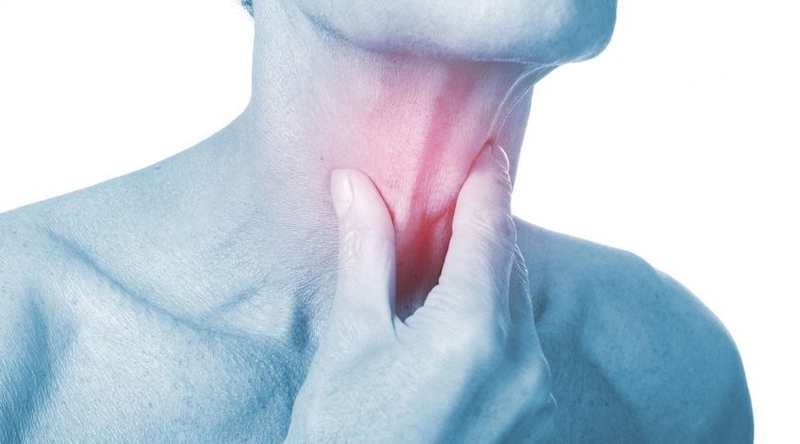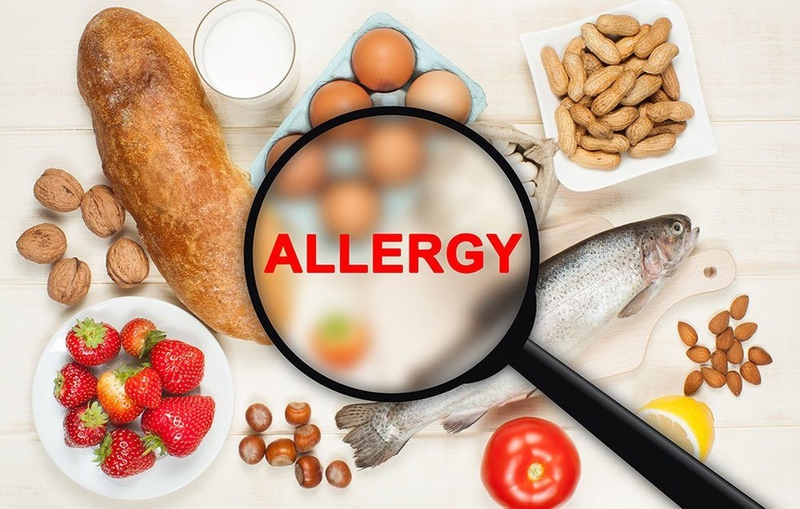Swelling of the structures around the jaw including the throat may be due to food allergy. The lymph nodes which is usually located under the jawbone also becomes swollen as a sign of inflammation in the soft tissue throughout the body. Know the details about this condition and the proper care for better treatment and management if you suffer from this condition.

What Are the Common Signs and Symptoms of Food Allergy?
Allergic reactions usually occur and develop within a few minutes to two hours after ingesting the offending food. It may cause discomfort to affected individuals. Some may even experience severe effects which can be frightening and at time life-threatening. The most common signs and symptoms involved in food allergies were as follow:
Tingling sensation and itching in the mouth area
Occurrence of eczema and hives
Face, lips, tongue, throat swelling after eating
Trouble in breathing
Nasal congestion and wheezing
Abdominal pain and diarrhea
Nausea and vomiting
Dizziness and fainting
Anaphylaxis or severe allergic reaction may be experienced. This is a serious condition that can cause life-threatening signs and symptoms:
Tightening or constriction of the air passages
Difficulty in breathing due to swollen areas or lump present in the throat
Severe drop in the blood pressure caused by shock
Rapid or increased pulse rate
Lightheadedness leading to possible loss of consciousness
Anaphylaxis is a critical condition that should be given emergency treatment. If remained untreated, this condition may lead to coma and even death.
Note:
If symptoms or signs of food allergy occur shortly after eating, see a doctor or an allergist immediately. If possible, seek medical help when the allergic reaction is still present as this will help in the diagnosis and treatments. Remember to have emergency treatment when any signs or symptoms of anaphylaxis are observed.
What Are the Possible Causes of Food Allergy?
Food allergies may be due to several factors. These may vary from the foods being ingested to the sensitivity of the body towards several substances and environment, which can cause throat swelling after eating and other signs listed above.
Pollen-food allergy syndrome. Food rich in protein may trigger allergies. This may include food sources such as shellfish, peanuts, fish, eggs, milk, wheat, and soy. Fresh fruits, vegetables, and spices may also cause allergies due to the process is known as cross-reactivity.
Age and family history. The person's age and family history can increase the risk of allergies. Children are more susceptible to be affected by this condition. Family tree also plays a big role as it can also increase the risk of members having asthma, eczema, and allergies.
Exercise-induced food allergy. Some foods tend to cause itchiness and nausea after performing exercise routines. Eating foods hours before exercising should be avoided to prevent the occurrence of allergies.
Food intolerance and other possible reactions. The food intolerance of a person may vary. Some may eat small amounts of problem foods without suffering from any reactions. However, there are some who may experience allergy even after eating tiny amounts of food. Always be aware of the foods being eaten as well as the ingredients present in each meal.
There are certain health conditions that are commonly mistaken as food allergies. Know these things to distinguish allergies caused by food from other health conditions.
Food poisoning. Cases of food poisoning can sometimes mimic the symptoms caused by allergies. Know the difference to properly manage and give immediate and proper relief to the condition.
Sensitivity to additives. There are some food additives and extenders that can cause digestive reactions similar to allergies. This condition can sometimes lead to asthma, so be cautious in addressing these two different medical conditions.
What Are the Treatments and Medications for Food Allergy?
Treatments and medications for food allergy may vary depending on the severity of the condition. Minor allergic reactions may be treated with over the counter drugs to relieve the symptoms like throat swelling after eating. This may include antihistamines and nasal sprays. Children suffering from allergies should be brought to a doctor for the best medication possible. Severe allergic reactions require immediate medical attention. The use of Epinephrine is a helpful step to save the life of patients suffering from allergic reactions.
Prevention is always better than cure. There are several effective ways to prevent suffering from allergic reactions. These may be the most helpful guide to avoid its occurrence.
Completely avoid foods that can cause allergic reactions
Never assume. Be sure to carefully read the food labels at all times. Check the ingredients to know whether it contains allergens or not. Some of the most common allergens include milk, eggs, peanuts, fish, shellfish, wheat, and soy.
Learn to say no. When in doubt, say no. Remember that even the smallest amount of food may cause severe allergic reactions in some people. Never take the risk and never underestimate the seriousness that food allergy may bring. Stay alert, especially when attending social events and gatherings. When something is suspicious with the foods being served, steer clear.
Involve the people around. Letting others know and understand food allergies is essential especially when children are involved. Make the people around aware of the foods to avoid. Also, teach them the things to be done when emergency situations arise.
Connect and communicate with others
Learn from others' experience. Take the opportunity to discuss and exchange information related to food allergies. Share experiences and gain new knowledge on how to properly handle the situation. Read and gather information from the internet and follow support groups for better management.
Educate others. Be sure to involve the people around. Make them understand the things involved in food allergies to make sure that proper attention will be given especially in children.
Know the foods to be eaten and those that should be avoided. Always be careful when eating outside. When suffering from allergies, make sure to know the basic emergency response and treatments.
Allergic reaction such as throat swelling after eating is a serious medical condition that should be given attention. Be knowledgeable of the signs and symptoms that are involved. Learn the basic treatments and medication to be able to give immediate relief. Stay healthy and be responsible at all times.

View All Comments /Add Comment